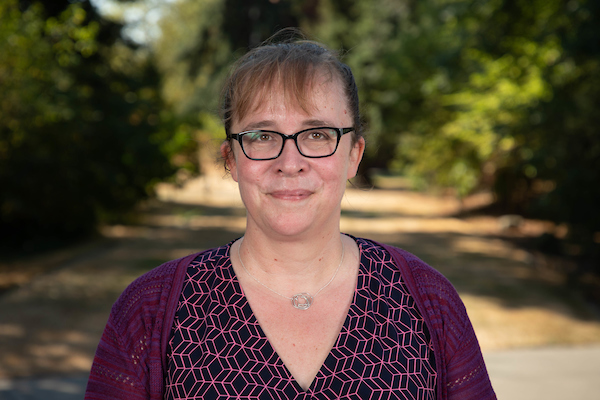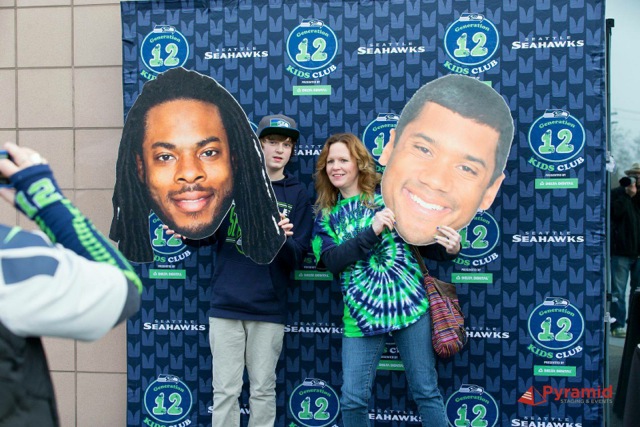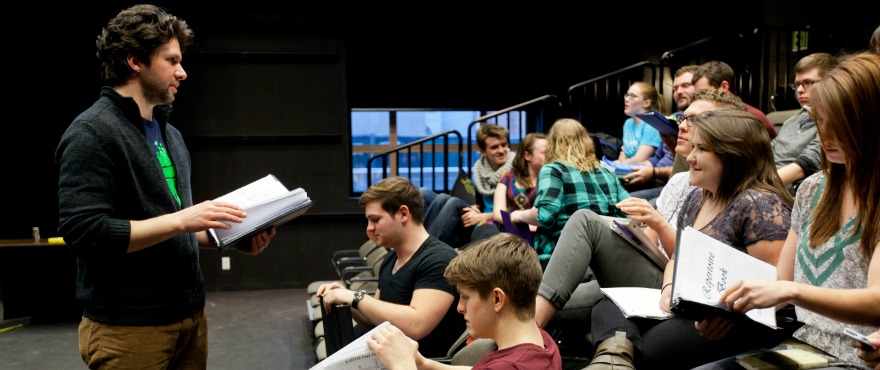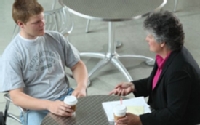Page 41 • (4,557 results in 0.026 seconds)
-

Visiting Instructor and Director, MSW & BSW Practicum Programs | Department of Social Work | carrington@plu.edu | 253-535-7859 | Maria Carrington earned her Bachelor of Social Work from Pacific Lutheran University and obtained her master of Social Work from Boston College.
constant learning and building of relationships, make this work both intellectually stimulating and emotionally fulfilling. My role as a practicum coordinator brings me immense satisfaction as it allows me to foster relationships with various facets of our community and play a pivotal role in our students’ social work education. Connecting with different organizations, agencies, and professionals across the community strengthens the ties between our academic program and the real-world social work
Office HoursTue: 12:00 pm - 1:00 pmThu: 12:00 pm - 2:00 pm -
The School of Business is home of some of the most active and dynamic student clubs, which are open to all students interested in business.
skills necessary for sound financial decision-making and financial well-being. Send us a quick email to join today! Email: plufinanceclub@plu.edu Faculty Advisor: Dr. Hank LinRegent's Investment FundThe Student Investment Fund (or Regents’ Investment Fund) gives PLU students the opportunity to engage in real world investment experience through keeping a perpetually diversified portfolio of assets in the fund, with investment decisions being made by the students of the club. Students of all majors
-

By Sandy Deneau Dunham PLU Marketing & Communications TACOMA, Wash. (Jan. 28, 2015)—If you can’t make it to the Seattle Seahawks’ pre-Super Bowl rally in Arizona on Jan. 31, you can take comfort in the fact that at least one Pacific Lutheran University graduate will…
even explain,” he said. “The PLU MBA program opened my eyes to what it was really like to be an entrepreneur. For my final project at PLU, I spent some time analyzing Commencement Bank. Little did I know, that relationship would develop into the backbone of our company financing, with a large line of credit, term loan and other resources at my disposal. Wow! Talk about taking things directly from the classroom into real life.” Initially, Dilts said, Pyramid Staging helped First & Goal, Inc. with
-
News articles and blog posts from Pacific Lutheran University.
Major Minute Monday: Political Science Curious about what it’s like to major in Political Science at PLU? In this quick video, Professor Michael Artime breaks down the essentials of the program, from the dynamic courses you’ll take to the real-world skills you’ll gain. Whether you’re into studying American government institutions,… November 11, 2024 AcademicsPolitical SciencePre-LawProfessors
-
News articles and blog posts from Pacific Lutheran University.
Krise Endowed Internship Fund Announcing the Patricia L. and Thomas W. Krise Endowed Internship Fund. The benefits of a summer internship—even an unpaid one—are unlimited and undeniable: Students can apply what they’ve learned in the classroom to real-world situations, network with people in the industry and gain valuable work… April 17, 2014 Higher EducationLeadershipNews
-
The deadline for submitting applications for OHSU’s 2021 Equity Research Program has been extended to Monday, January 25, 2021 at 5 PM Pacific Time. The updated flyer is accessible via this link: Equity+Internship_2021flyer(edited)
2021 Equity Research Program with EXTENDED DEADLINE! Posted by: alemanem / January 4, 2021 January 4, 2021 The deadline for submitting applications for OHSU’s 2021 Equity Research Program has been extended to Monday, January 25, 2021 at 5 PM Pacific Time. The updated flyer is accessible via this link: Equity+Internship_2021flyer(edited) Read Previous Washington Sea Grant Graduate Science Communications Fellowship Read Next Ole Miss Now Accepting 2021 Summer REU Applications LATEST POSTS
-

So now what? After going to the Big Apple and making it big – as in a key part on a Broadway, Tony-winning, Pulitzer Prize winning play big – what’s next? Louis Hobson ’00 gets asked that question a lot these days. And his answer…
, 10 months. Life has seemingly come full circle for the performing arts major, who after appearing in a number of plays after graduating from Pacific Lutheran University in 2000, decided in 2008 that it was time to take the plunge and see if he could make it in New York City. So with no prospects and only the promise of a blow up mattress on a friend’s living room in Queens, Hobson left his wife behind and took the risk. And that make all the difference for the Puyallup native. Within a few weeks
-

Dance collaboration has many meanings. Traditional collaborations include choreographers and composers working together to create a soundscape, or providing costume ideas for designers. Many choreographers collaborate with dancers to create the movement for a dance. Dance 2019 – Collaborations will feature two choreographed pieces by…
actual dancing was quite different from solo to solo. I then worked with the dancers to add nuance and to emphasize certain elements of their dancing.” “The real work of creating a dance is how the specific movements are arranged. For example, a solo is very different from a duet or a trio or a large group. A group of dancers dancing the same movement, at the same time, facing the same direction, is very different than a group of dancers performing completely different movement. So, after working
-

BUSA 201: Value Creation in the Global Environment Name: Steven Mattich Hometown: Olympia, Wash. Major: Undeclared, leaning Business or Economics Professor: Carol Ptak, distinguished executive in residence Steven’s advice to first-year students: “If you want to check out a class that you are thinking about…
201, called “Value Creation in the Global Environment,” is designed to introduce students to the many aspects of business – from financial accounting and operations to marketing. By design, it covers a broad swathe. But that doesn’t mean students spend all their time with their nose in a book. Hardly. “I thought the best way to conduct the class was to have the students apply what they are reading to a real idea for a business,” said Carol Ptak, distinguished executive in residence. “I have been
-
So now what? After going to the Big Apple and making it big – as in a key part on a Broadway, Tony-winning, Pulitzer Prize winning play big – what’s next? Louis Hobson ’00 gets asked that question a lot these days. And his answer…
, 10 months. Life has seemingly come full circle for the performing arts major, who after appearing in a number of plays after graduating from Pacific Lutheran University in 2000, decided in 2008 that it was time to take the plunge and see if he could make it in New York City. So with no prospects and only the promise of a blow up mattress on a friend’s living room in Queens, Hobson left his wife behind and took the risk. And that make all the difference for the Puyallup native. Within a few weeks
Do you have any feedback for us? If so, feel free to use our Feedback Form.


